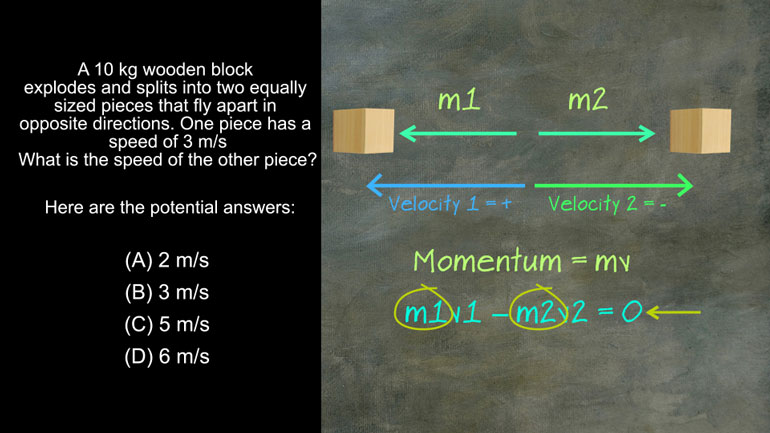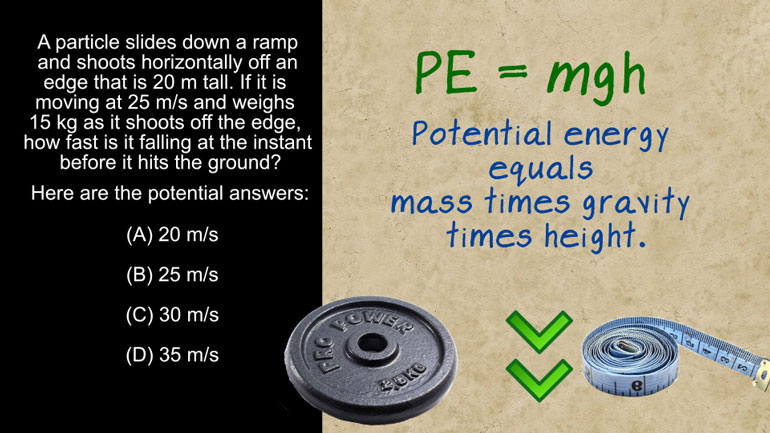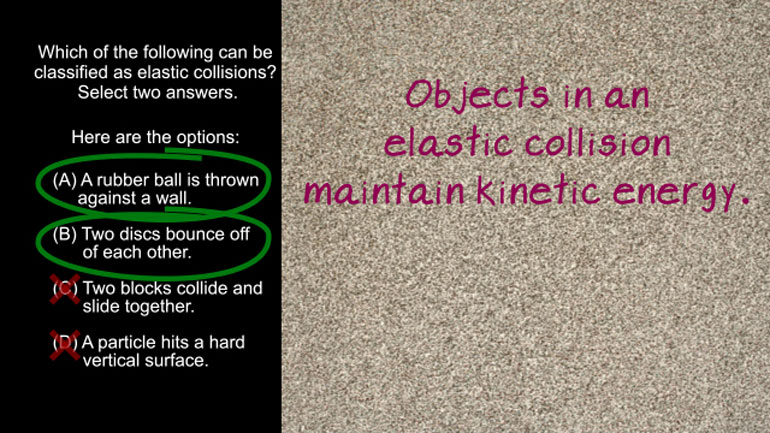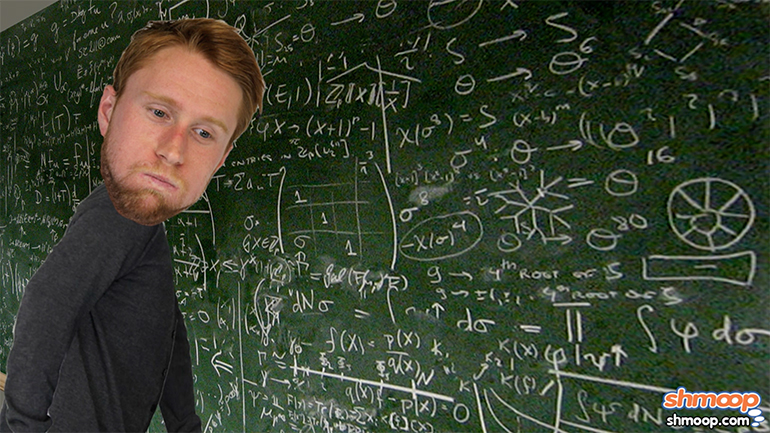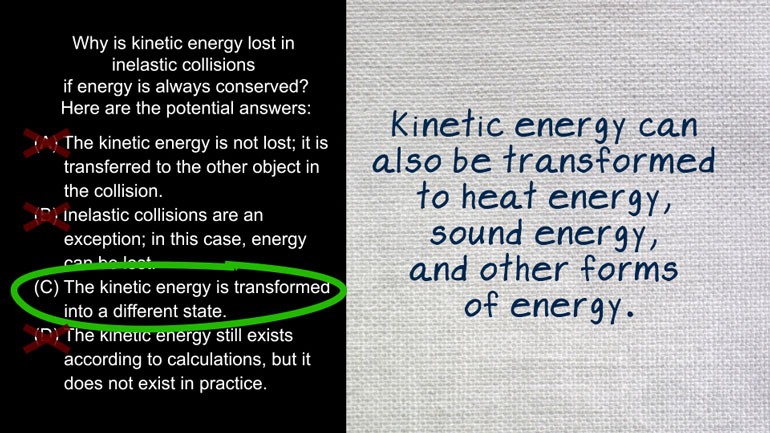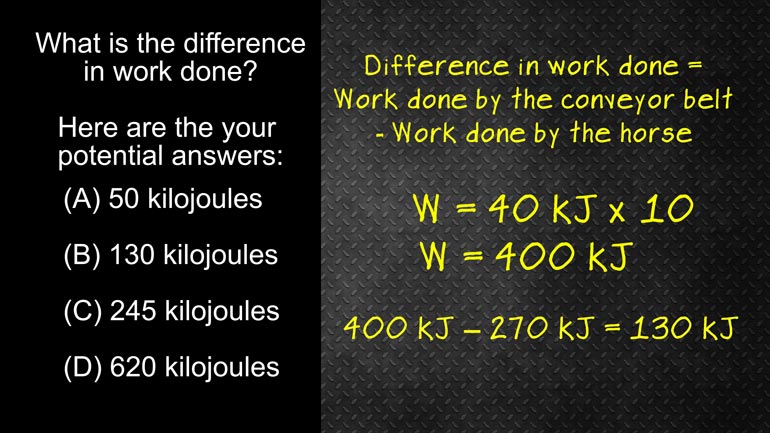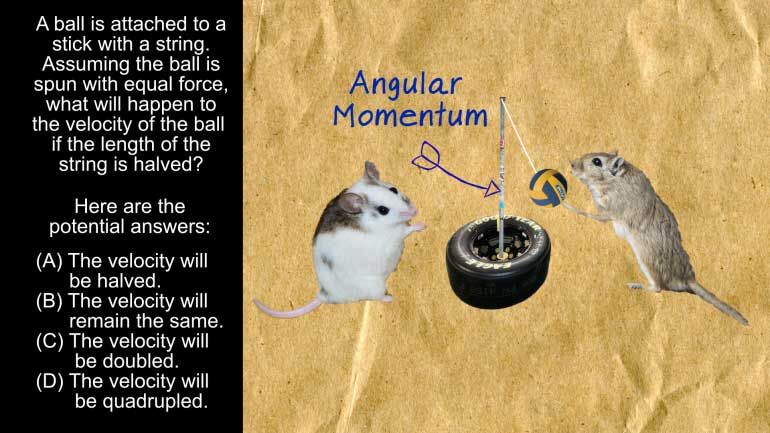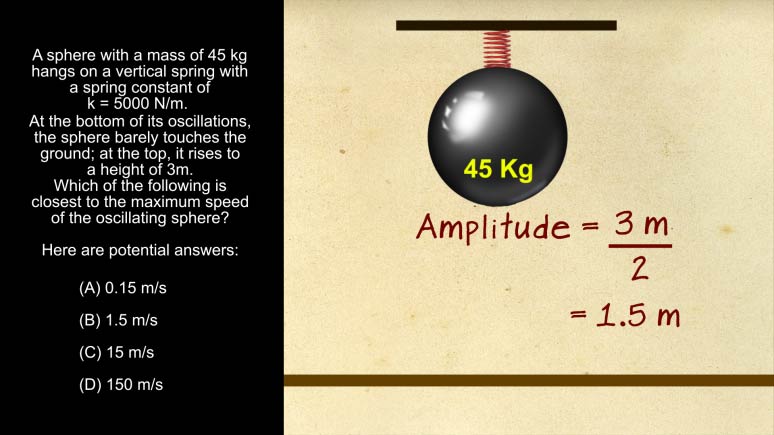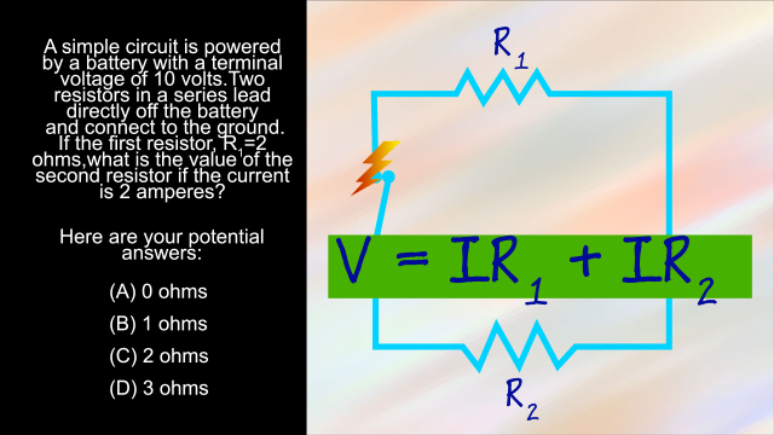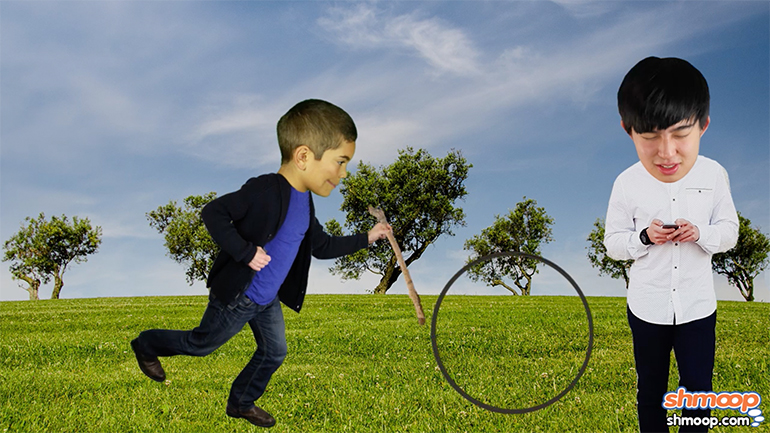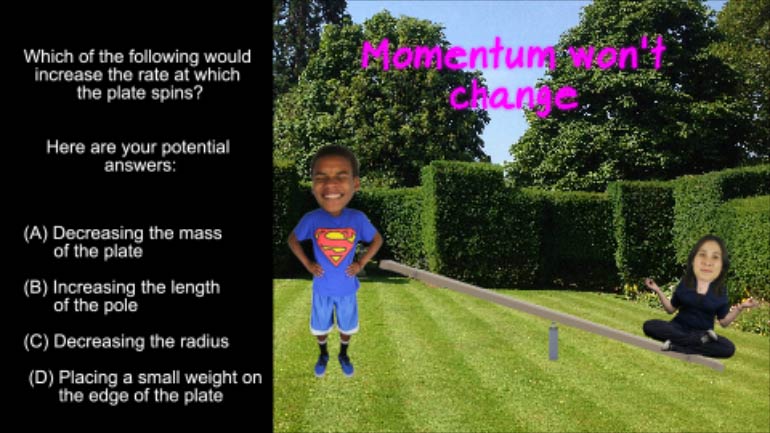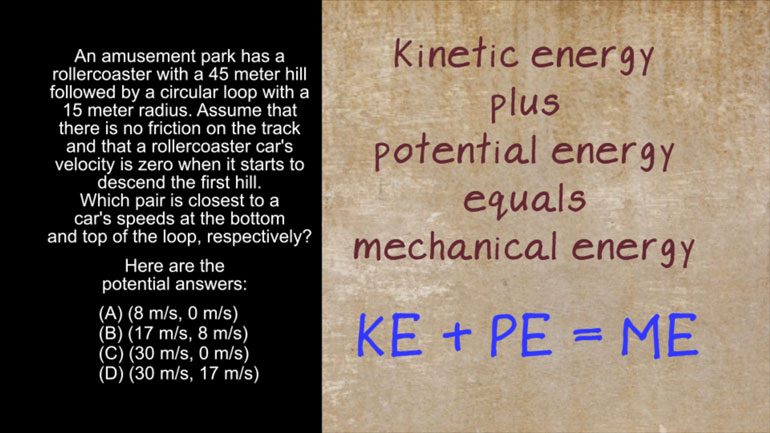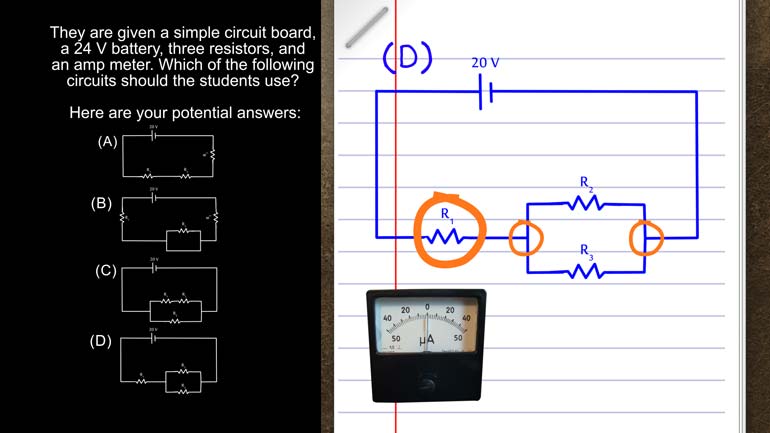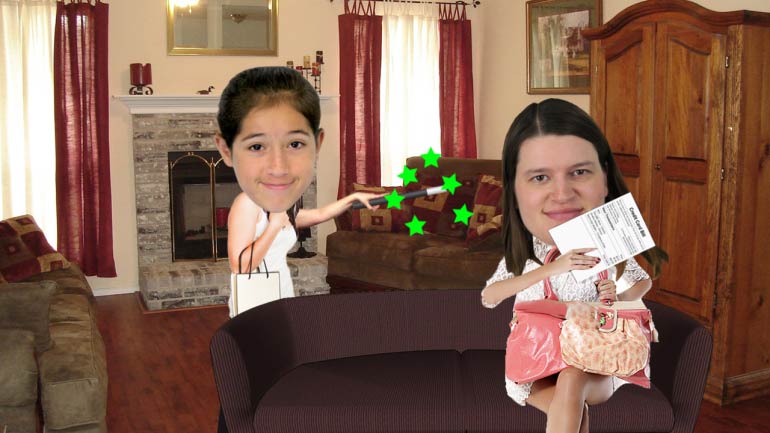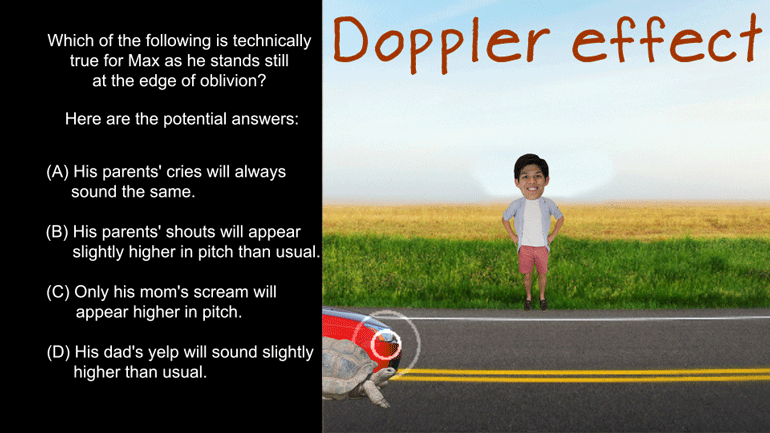ShmoopTube
Where Monty Python meets your 10th grade teacher.
Search Thousands of Shmoop Videos
Changes and Conservation Laws Videos 15 videos
AP Physics 1: 1.1 Changes and Conservation Laws. What is the speed of the other piece of wood?
AP Physics 1: 1.3 Changes and Conservation Laws. How fast is the particle falling at the instant before it hits the ground?
AP Physics 1: 1.5 Changes and Conservation Laws. Which of the following can be classified as elastic collisions?
AP Physics 1: 2.2 Changes and Conservation Laws 183 Views
Share It!
Description:
And now, the moment you've all been waiting for: a stuntwoman refuses to do a stunt and does math problems instead! (The crowd goes wild).
Transcript
- 00:02
All right well here's your shmoop du jour brought to you by hoops. Back in
- 00:06
the day kids used to play a game by making a hoop roll along the ground by hitting [Child hitting a hoop along the ground]
- 00:09
it with a stick and we're really happy we didn't live back in the day.. it was really boring... [Man uses his mobile phone]
- 00:14
A 60kg ball is dropped from a platform, passes through a hoop and then
- 00:19
it hits the ground. If the platform is 30 meters above the ground and the hoop is
Full Transcript
- 00:24
10 meters above the ground about how fast is the ball falling when it passes
- 00:29
through the hoop? Our choices are 10,15, 20, 25 meters a second. All right well
- 00:35
there are different ways to figure this question out, we could use kinematics for
- 00:38
example or we could actually build this whole set up and break out a radar gun [Picture of a tower that has a hoop attached to the front]
- 00:43
any policeman around?.. Well that sounds like a lot of work all that including
- 00:47
the cops. But just having a ball through a hoop isn't that exciting, [Speed gun measures how fast the ball falls through the hoop]
- 00:51
instead of just a plain old ball let's make this about a high diver and let's
- 00:55
set that hoop on fire, all right now our diver has to fall through the flaming [Diver appears at the top of the tower and the hoop is now on fire]
- 01:00
hoop of doom and jump into this tiny pool of water. There you go that's better...
- 01:04
We'll model this divers motion using conservation of energy, while she's up on
- 01:09
the platform preparing for her death-defying leap the diver only has [A person bungee jumps from a bridge]
- 01:12
potential energy, with that good old equation mass times gravity times height.
- 01:17
When we plug in the numbers and do the math we find the potential energy to be
- 01:22
18,000 joules. Now once she's actually falling and
- 01:26
reaches the height of the hoop we can look at a combination of kinetic and [Diver jumps at stops at the flaming hoop]
- 01:30
potential energy, well the total energy aka mechanical energy still has to
- 01:34
equal 18 thousand joules. Figure out the potential energy slice of this pie
- 01:38
first. We're using the same equation and the same numbers except the height has [People take slices of pizza]
- 01:42
changed so now the potential energy is 6,000 joules, we subtract that number
- 01:47
from the mechanical energy to find the kinetic energy and we get 12,000 joules.
- 01:52
Well kinetic energy equals one-half mass times the square of velocity, we know the
- 01:58
mass and we know the kinetic energy so we can just solve for velocity. Multiply
- 02:02
each side by 2 and then divide each side by 60 and find that V squared equals 400
- 02:07
meters a second and when we take the square root of that 400 meters a second
- 02:12
we end up with a velocity of 20 meters a second also known as
- 02:16
answer C. When we're dealing with falling objects like this we can use the
- 02:20
potential energy as a starting point to solve all sorts of variables. We just [Man dodges big boulders falling from above him]
- 02:25
have to remember how to calculate it and how it relates to mechanical energy and
- 02:29
kinetic energy. Now we're going to go play with our new favorite app it's
- 02:33
called 'hoopster', you control a kid from way back who's rolling a hoop along the
- 02:38
ground with a stick, yeah isn't modern technology great... [Some playing the 'hoopster' game on their phone]
Related Videos
AP Physics 1: 1.4 Changes and Conservation Laws. Find the current across R2.
AP Physics 1: 2.4 Changes and Conservation Laws. Which of the following circuits should the students use?
AP Physics 1: 2.5 Changes and Conservation Law. At what point(s) in this situation is energy lost in any form?
AP Physics 1: 1.4 Waves. Which of the following is technically true for Max as he stands at the edge of oblivion?
AP Physics 1: 1.5 Waves. What can possibly occur when the two waves reach each other?
